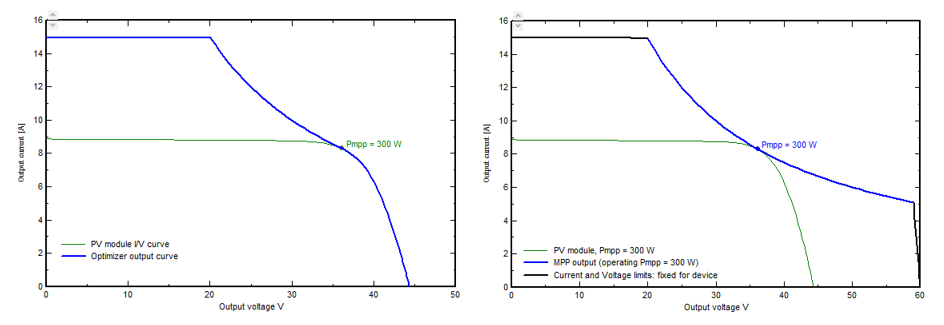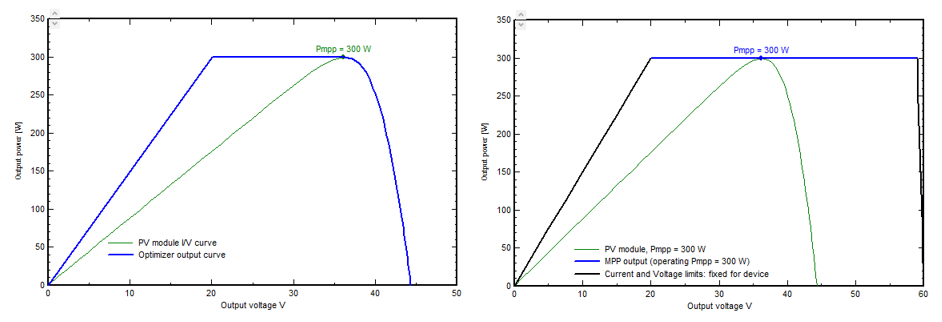|
<< Click to Display Table of Contents >> Optimizer Buck / Boost modes |
  
|
|
<< Click to Display Table of Contents >> Optimizer Buck / Boost modes |
  
|
The objective of the Power optimizer is to extend the voltage range for which the PV module can deliver is maximum power.
This may be done in two different ways:
| - | On the left, the Buck-only mode. |
| For voltages below the Vmpp, the optimizer will deliver the same power than the Pmpp of the module, by increasing the current when the voltage diminishes. This means an hyperbolic I/V characteristics characterized by the equation I (out optimizer) = Pmpp / U (out optimizer). This increase is limited by a Maximum current allowed for the device. |
| For voltages above the Vmpp value, the optimizer output follows the I/V curve of the PV module. |
| - | On the right, the Buck-Boost mode. |
| The behaviour is the same under the Vmpp voltage. |
| For voltages above the Vmpp value, the Pmpp power is also ensured by diminishing the current, according to the same hyperbolic equation. This extends the possible voltage operating range, especially useful with an inverter at fixed input voltages, when the number of optimizers is low. |

The MPP power plateau is more explicit on the P/V curves: This clearly shows the possible voltage range without losing power. This solves the problem of the mismatch between PV modules, which may be due to bad modules, partial shadings, soiling, differential ageing, etc.
